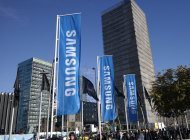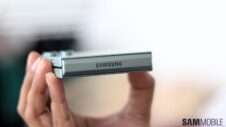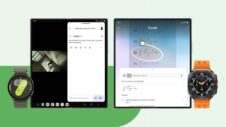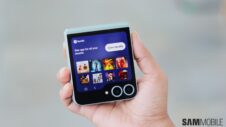Tomorrow (Tuesday) the jury will begin its deliberations following the Apple v. Samsung patent infringement trial in San Jose, California. Juries in U.S. patent cases are unpredictable because laypeople rarely figure out the complex technical issues involved. Their decisions are all too often based on non-technical factors such as a lawyer's looks or, regrettably, xenophobia. But a jury verdict is not the last word in a dispute in which both parties are sure to appeal any unfavorable parts of a decision. The really interesting part begins only after the trial.
The first trial in 2012 was a win for Apple from the moment it started to the billion-dollar verdict. Subsequently, Apple's most valuable software patent in the trial (damages were mostly based on design patents) was found invalid by the United States Patent and Trademark Office, and Apple was twice (before and after an appeal) denied an injunction against Samsung. To date, Samsung has not had to pay Apple one cent, and it will probably take another trial (the third one just in that first lawsuit) before Apple will physically receive any money. Damages are not the most important part anyway. Only a sales ban gives a party to a dispute of this profile serious leverage, and even most sales bans don't because the underlying patents can most of the time be worked around in ways that consumer don't notice, or that at least don't reduce demand to any measurable extent.
The current trial has not gone nearly as well for Apple as the first one. Even if the jury nevertheless (despite reasonably good defenses on Samsung's part) sided with Apple, Samsung's business would ultimately not be affected in any serious (or, as Steve Jobs purportedly called it, “thermonuclear”) way.
In 2012, Apple was able to persuade a lot of people that Samsung had “copied” the iPhone and the iPad. Not so much now. Apple is not asserting any design patents. It is now suing Samsung over five software patents, two of which are originally Macintosh-, not iPhone-related patents. Four of the five patents allegedly read on functionality that is part of Google's Android mobile operating system, which is why various Google witnesses appeared at the trial and why Google has actually agreed to pick a part of the cost of Samsung's defense (and of any damages). Apple thought it would get a more favorable outcome by suing Samsung, but its real target is Google. Major media like Bloomberg and the Mercury News (the leading Silicon Valley newspaper) recognize Google's role, which Apple desperately tries to downplay.
Not one recognized expert has come out in support of Apple's $2.2 billion damages claim (based in part on a $40 “royalty” per device). The most benign comment was that Stanford intellectual property law professor Mark Lemley described this demand as “remarkably high”. Yankee Group Senior Analyst Boris Metodiev simply called it “ridiculous”. Should the jury award Apple an excessive amount, Judge Lucy Koh could still reduce it after the trial, and if she didn't, the appeals court presumably would.
Samsung could take it easy even if (unlike last time) Apple won an injunction after this trial. None of the five Apple patents in play has the potential to do serious damage. Slide-to-unlock, which 10 European judges have deemed “not patentworthy”, is not even asserted against all of the Samsung products at issue in this case (such as the Note 2) because Samsung has slide-to-unlock mechanisms in place that even Apple can't allege to infringe. The so-called “quick links” patent was defanged and devalued by the appeals court (because of a decision in a parallel Apple v. Motorola case) on Friday. It can be worked around by copying certain program code from the operating system into the applications that detect data such as phone numbers in emails and other documents. And the other three patent claims (a claim is a subset of a patent, like a patent within a patent) are not even practiced by Apple's current products. This means that Samsung could avoid any future infringement of those patent claims by “copying” the way Apple implements the same features. Apple's patents-in-suit don't cover full features, only limited aspects of particular implementations. That is one of the reasons why “copying” is the wrong term in the first place.
Even if the jury and, subsequently, the judge sided with Apple all the way, Samsung's product offerings would be no less attractive to American consumers than before. And the rest of the world — where complex patent cases are put before professional judges rather than juries and where Apple interestingly hasn't scored any noteworthy, lasting win — would not be affected by a U.S. ruling anyway.
No matter the outcome of this trial, and regardless of any noise Apple may make afterwards, Samsung will remain the global market leader and Apple's market share will continue to erode. Apple has strategically lost the platform war to Android and doesn't appear to own patents that enable it to deprive Android of any feature other than rubberbanding.
This blog has been written by quest blogger Florian Mueller.
Florian Mueller is the author of the FOSS Patents blog, which has covered many patent lawsuits involving Android in detail. He is also an intellectual property consultant with clients in recent years including, among others, Microsoft, Oracle, and a German car manufacturer. His Note 3 is his sixth Samsung phone in a row. At this point he is spending less of his time on patents and more on the development of an Android game app.






